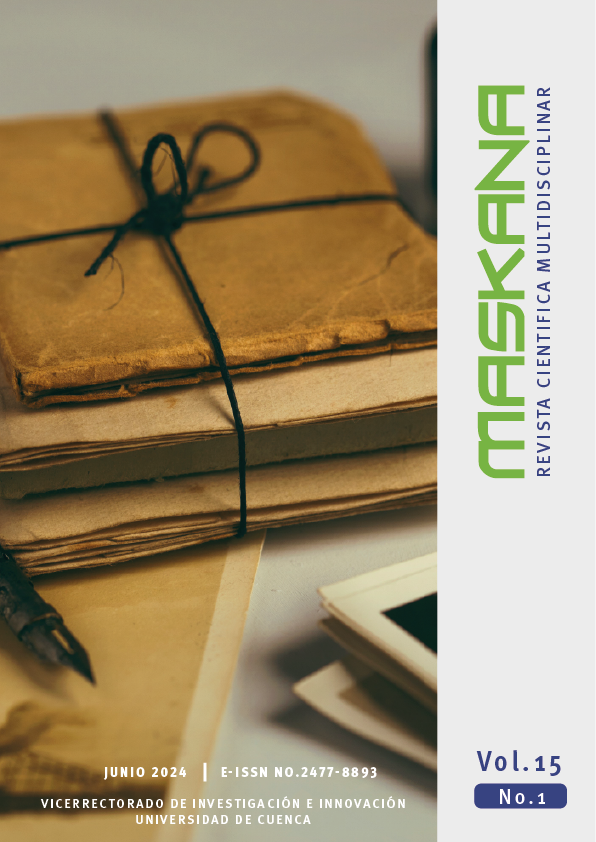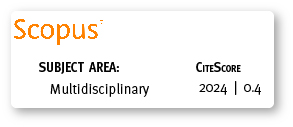Reformulación de la información financiera: una primera aproximación a través de la literatura
DOI:
https://doi.org/10.18537/mskn.15.01.07Palabras clave:
reformulaciones contables, calidad de la información contable, fiabilidad, confiabilidad, partes interesadasResumen
La reformulación es un proceso de reelaboración de las cuentas anuales de las empresas para subsanar errores detectados después de la formulación. Este proceso supone con frecuencia una importante quiebra de la credibilidad de sus directivos. En este estudio se propone una revisión de la literatura utilizando la metodología PRISMA 2020 y el programa VOSviewer para conocer las principales líneas de investigación existentes sobre reformulaciones contables. Una vez analizados los resultados, la literatura objeto de estudio se puede agrupar en tres áreas: 1) las diferentes variables que mide la reformulación o proxy que se utiliza, 2) las causas y factores de la reformulación y 3) las consecuencias y efectos de dicho proceso. La principal conclusión es que, aunque la reformulación no sea un proceso muy común, sí supone una fuerte alteración de la confianza de los distintos usuarios o agentes y que tiene unas causas concretas y unas consecuencias reseñables. Finalmente, se señalan posibles líneas futuras de investigación en el área.
Descargas
Métricas
Citas
Abbott, J.L., Parker, S., y Peters, G.F. (2004). Audit committee characteristics and restatements. Auditing: A Journal of Practice y Theory, 23(1), 69–87.
Abril, C., Camacho-Miñano, M.M. y Gimenez, E. (2024). Using Gamification to Overcome Innovation Process Challenges: A Literature Review and Future Agenda. Technovation (in press)
Agrawal, A., y Chadha, S. (2005). Corporate governance and accounting scandals. Journal of Law & Economics, 48, 371–406.
Albring, S.M., Huang, S.X., Pereira, R., y Xu, X. (2013). The effects of accounting restatements on firm growth. Journal of Accounting Public Policy, 32(5), 357–376.
Birkle, C., Pendlebury, D. A., Schnell, J., y Adams, J. (2020). Web of Science as a data source for research on scientific and scholarly activity. Quantitative Science Studies, 1(1), 363-376.
Briner, R.B., Denyer, D., y Rousseau, D.M. (2009). Evidence-based management: concept cleanup time? Academy of Management Perspectives, 23(4) 19–32.
Bhuiyan, M. B., Opare, S., y Ahmed, Z. (2024). Does audit committee busyness affect financial restatement? Evidence from audit committee share ownership. Australian Accounting Review, 34(1), 29-54. https://doi.org/10.111/auar.12416.
Chang, W. C., y Chen, Y. S. (2017). Shopping for accounting accruals and restatements. Emerging Markets Finance and Trade, 53(3), 554-562.
Crossan, M.M., y Apaydin, M. (2010). A multi-dimensional framework of organizational innovation: a systematic review of the literature. Journal of Management Studies, 47(6), 1154–1191.
Dechow, P., Ge, W., y Schrand, C. (2010). Understanding earnings quality: A review of the proxies, their determinants and their consequences. Journal of Accounting and Economics, 50(2-3), 344-401.
Flanagan, D. J., Muse, L. A., y O’Shaughnessy, K. C. (2008). An overview of accounting restatement activity in the United States. International Journal of Commerce and Management, 18(4), 363-381.
Fragoso, J. L., Peixinho, R. M., Coelho, L. M., y Paiva, I. C. (2020). The impact of financial restatements on financial markets: a systematic review of the literature. Meditari Accountancy Research, 28(6), 1119-1147.
Fox, Z. D., y Wilson, R. (2023). Double trouble? IRS’s attention to financial accounting restatements. Review of Accounting Studies, 28(4), 2002-2038.
Gleason, C. A., Jenkins, N. T., y Johnson, W. B. (2008). The contagion effects of accounting restatements. The Accounting Review, 83(1), 83-110.
Gong, S., Ho, N., Jin, J. Y., y Kanagaretnam, K. (2022). Audit quality and COVID-19 restrictions. Managerial Auditing Journal, 37(8), 1017-1037.
Gough, D. (2007). Weight of evidence: A framework for the appraisal of the quality and relevance of evidence. Research Papers in Education, 22, 213–228.
Gunther, J. W., y Moore, R. R. (2003). Loss underreporting and the auditing role of bank exams. Journal of Financial Intermediation, 12(2), 153-177.
Hennes, K. M., Leone, A. J., y Miller, B. P. (2008). The importance of distinguishing errors from irregularities in restatement research: The case of restatements and CEO/CFO turnover. The Accounting Review, 83(6), 1487-1519.
Herly, M., Bartholdy, J., y Thinggaard, F. (2020). A re‐examination of accruals quality following restatements. Journal of Business Finance & Accounting, 47(7-8), 882-909.
Hribar, P., y Thorne Jenkins, N. (2004). The effect of accounting restatements on earnings revisions and the estimated cost of capital. Review of Accounting Studies, 9, 337–356.
LaPorta, R., Lopez-de-Silanes, F., Shleifer, A., y Vishny, R. W. (1998). Law and finance. Journal of Political Economy, 106(6), 1113-1155.
Li, V., y Luo, Y. (2023). Changes in accounting estimates during the COVID-19 pandemic in the USA. Asian Review of Accounting, 32(2), 223-248. https://doi.org/10.1108/ARA-10-2022-0243
Li, H., Terjesen, S. y Umans, T. (2020). Corporate governance in entrepreneurial firms: a systematic review and research agenda. Small Business Economics, 54, 43–74.
Lin, P., Lee, S., Chen, X., y Yur-Austin, J. (2015). Highlights of financial restatements from 2000 through 2011. Management Accounting Quarterly, 17(1), 19.
Mafrolla, E. (2019). Accounting Restatements: A European Perspective. Giappichelli.
Morschheuser, B., Hamari, J., Koivisto, J., y Maedche, A. (2017). Gamified crowdsourcing: Conceptualization, literature review, and future agenda. International Journal of Human-Computer Studies, 106, 26-43.
Palmrose, Z. V., y Scholz, S. (2004). The circumstances and legal consequences of non‐GAAP reporting: Evidence from restatements. Contemporary Accounting Research, 21(1), 139-180.
Page, M. J., McKenzie, J. E., Bossuyt, P. M., Boutron, I., Hoffmann, T. C., Mulrow, C. D., ... y Moher, D. (2021 a). The PRISMA 2020 statement: an updated guideline for reporting systematic reviews. International Journal of Surgery, 88, 105906.
Page, M.J., McKenzie, J.E., Bossuyt, P.M., Boutron, I., Hoffmann, T. C., Mulrow, S. D., Shamseer, L., Tetzlaff, J. M. y Moher, D. (2021b). Updating guidance for reporting systematic reviews: development of the PRISMA 2020 statement. Journal of Clinical Epidemiology, 134, 103–112.
Pérez-Pérez, Y. (2020). El riesgo en la información financiera (Doctoral dissertation, Universidad Complutense de Madrid). https://docta.ucm.es/entities/publication/c5eff50e-acfe-423e-b8aa-d40b8e4204bb
Piedehierro, L. (21 de marzo de 2024). La CNMV pide a Grifols que reexprese parte de sus cuentas de 2022 y 2023 y no descarta “medidas correctoras”. El Español. https://www.elespanol.com/invertia/mercados/20240321/cnmv-pide-grifols-reexprese-parte-cuentas-no-ve-motivos-sancionarla/841666342_0.html
Plumlee, M., y Yohn, T. L. (2010). An analysis of the underlying causes attributed to restatements. Accounting Horizons, 24(1), 41-64.
Simón Ruiz, A. (28 de abril de 2022). El auditor obliga a Grifols a apuntarse como deuda la inyección de capital del fondo soberano de Singapur. El País. https://cincodias.elpais.com/cincodias/2022/04/28/companias/1651173931_649098.html
Street, D.A., y Hermanson, D. R. (2019). How do restatements affect outside directors and boards? A review of the literature. Journal of Accounting Literature, 43(1), 19-46.
Tranfield, D., Denyer, D., y Smart, P. (2003). Towards a methodology for developing evidence‐informed management knowledge by means of systematic review. British Journal of Management, 14(3), 207-222.
Upton, G., y Cook, I. (2002). Oxford Dictionary of Statistics. OUP.
Wu, Y.A., Kuang, Y.F., Lee, G. y Zhai, K. (2023). Do ties still bind? Analyst behaviour after financial restatements. Accounting & Finance, 1–36.
Zhang, Q., Tang, G., y Qin, X. (2023). Comment Letters and Reporting Quality: Evidence from Financial Restatements. Asia‐Pacific Journal of Financial Studies, 52(6), 924-948.
Zoiro Grima, A., García Benau, M. A. y Puello Martínez, M. C. (2004). Calidad, un nuevo concepto clave en el desenlace del proceso de armonización contable internacional. Spanish Journal of Finance and Accounting/Revista Española de Financiación y Contabilidad, 33(121), 313-347.
Publicado
Cómo citar
Número
Sección
Licencia
Derechos de autor 2024 M. Carmen Tejada Ximénez de Olaso, Begoña Navallas Labat, Maria del Mar Camacho Miñano

Esta obra está bajo una licencia internacional Creative Commons Atribución-NoComercial-CompartirIgual 4.0.
Copyright © Autors. Creative Commons Attribution 4.0 License para cualquier artículo enviado a partir del 6 de junio de 2017. Para los manuscritos presentados anteriormente, se utilizó la licencia CC BY 3.0.
![]()
Usted es libre de:
 |
Compartir — compartir y redistribuir el material publicado en cualquier medio o formato. |
 |
Adaptar — combinar, transformar y construir sobre el material para cualquier propósito, incluso comercialmente. |
Bajo las siguientes condiciones:
 |
Atribución — Debe otorgar el crédito correspondiente, proporcionar un enlace a la licencia e indicar si se realizaron cambios. Puede hacerlo de cualquier manera razonable, pero de ninguna manera que sugiera que el licenciador lo respalda a usted o a su uso. |
| Sin restricciones adicionales: no puede aplicar términos legales o medidas tecnológicas que restrinjan legalmente a otros a hacer cualquier cosa que permita la licencia. |
Mayor información sobre este acuerdo de autoría y licencia, transferencia de derechos o solicitudes de reproducción, pueden ser consultados en este enlace.









